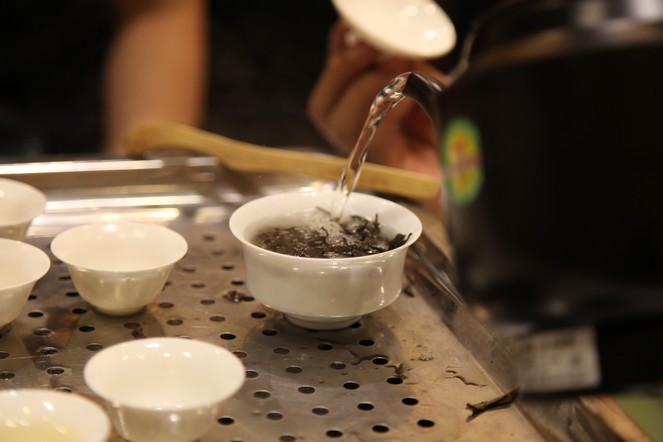Some teas suffer from being infused in water that is too hot. On this subject, I’d like to tell you that you cannot make a good cup of tea if the water has been boiled, even if it is then left to cool down. In fact, when water boils, the oxygen evaporates, and the tea leaves need this oxygen during infusion to release all their flavours and aromas.
The importance of water temperature
9 April 2013






Why does that matter? Can you go into more details of how that changes? What are the sources of this information? In China, usually you always have to boil the water first for safety reasons.
Thank you for the The importance of water temperature information. Interesting, clear and precise. Congratulations again on a good job François-Xavier.
Yes of course you may have to boil water for safety reasons.
To go further on that subject here is a contribution of a friend of mine who is scientist. I’m sorry it is in french and I don’t want to take any risk while translating.!
« Ce qui est certain, c’est qu’à l’ébullition, la teneur en oxygène dissous de l’eau tombe quasiment à zéro. Cela est dû à l’élevation de température, et prend un temps assez court pour se produire; les quelques dizaines de secondes nécessaires à la bouilloire pour faire monter la tempétature suffisent. Il y a un cas inverse : la flash pasteurisation, qui je crois consiste à faire atteindre l’ébullition très très rapidement, pour tuer les micro-organismes mais éviter que l’oxygène et autres gaz dissous n’aient le temps de s’échapper. Il y a donc un facteur temps dans le problème. »
« En redescendant en température, l’eau peut à nouveau se charger en oxygène, et c’est l’argument qu’invoquent les partisans du « two or three times boiling ». Elle le peut, mais je pense que la redissolution d’oxygène, qui vient de l’air au dessus du récipient, est lente. Et donc qu’en rebouillant juste après une première montée en température, l’eau n’a pas réatteint sa teneur initiale en oxygène dissous. »